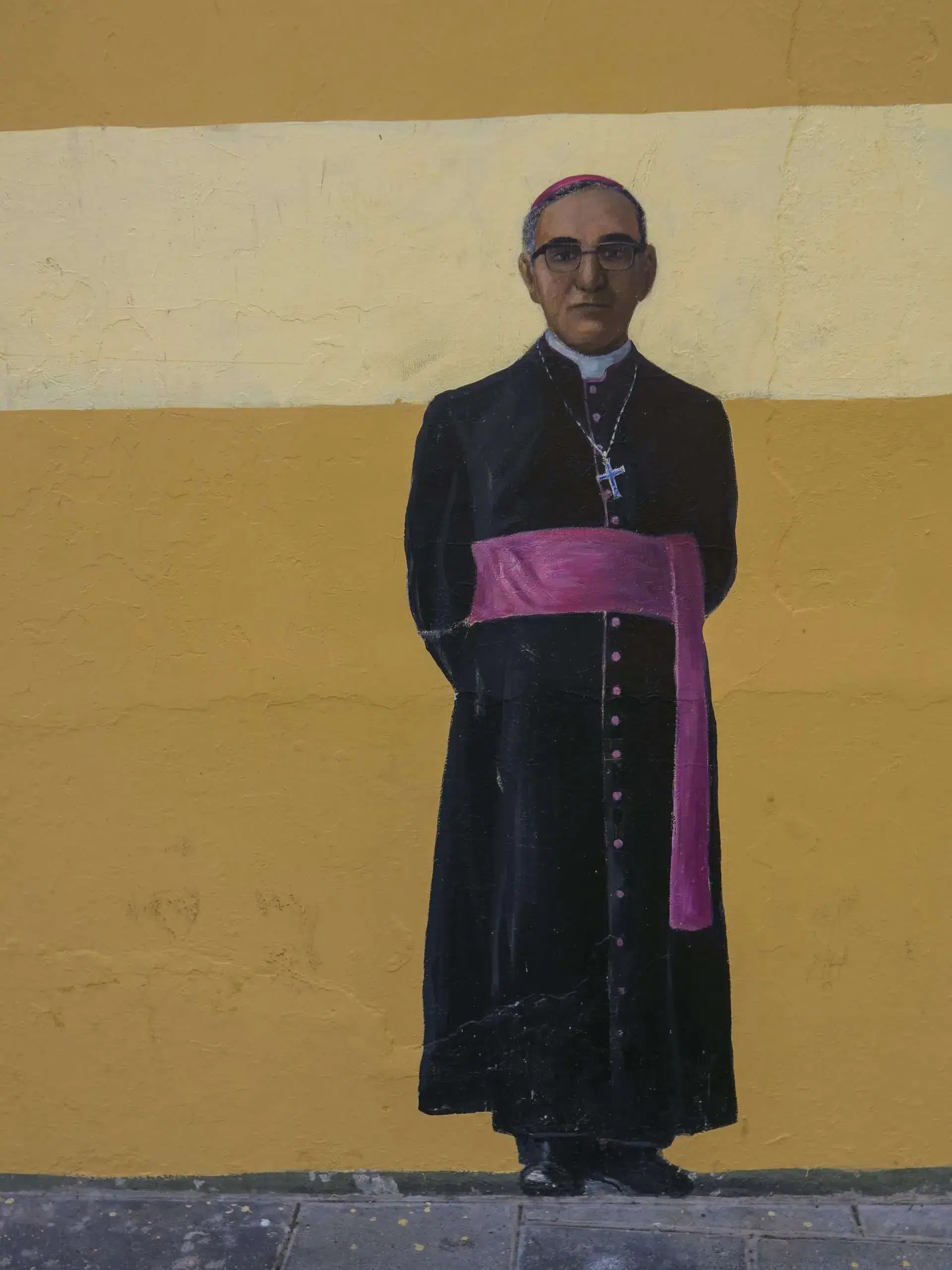Monsignor Óscar Arnulfo Romero “would not have supported a de facto government” in El Salvador. That’s the opinion of Father Vicente Chopin when relating the current context of the country to the repressive and authoritarian reality in which Romero served as Archbishop of San Salvador, in the 1980s, before the civil war.
Romero was appointed Archbishop of the capital on February 3, 1977, and took office on the 22nd of the same month in a simple ceremony. His pastoral work was carried out amidst serious human rights violations, abuses of power, and injustices. Under this panorama, the now-saint took charge of denouncing social injustices and creating an entity to monitor the thousands of casualties. Due to his denunciations, he was assassinated on March 24, 1980, at approximately 6:25 pm, while officiating the Eucharist at the Divine Providence Hospital Chapel in San Salvador.
Father Chopin says that Romero lived in complicated conditions similar to the present ones, and that’s why he believes that the legacy of the martyred bishop can be brought to life today.
“For us, Romero is a beacon of light, an example, a model of life and civic ethics,” says the priest of the Diocese of San Vicente. He emphasizes that Romero was an exemplary bishop and, in his opinion, would not have supported a leader who disrespects the law and is accused of serious human rights violations.
Furthermore, the religious figure states that the Salvadoran martyr bishop probably would not have attended a re-election governmental ceremony like the one that took place on June 1, 2024, because “that would be supporting the disrespect for the law.”
Over the weekend, Nayib Bukele took office again, despite the fact that the current Constitution prohibits it in seven articles.
Human rights defending organizations warn of the increase in repressive measures in the country. However, Father Chopin states that at this moment, it is necessary to turn to Saint Romero for some light, to understand what is happening and what can be done.
Monsignor Romero was beatified on May 23, 2015, in San Salvador, and canonized in Rome in October 2018. His remains are located in the Crypt of the Metropolitan Cathedral of San Salvador.
Monseñor Romero no apoyaría a un mandatario señalado de graves violaciones a derechos humanos: Padre Chopin
Monseñor Óscar Arnulfo Romero “no hubiera apoyado a un gobierno de facto” en El Salvador. Así lo considera el padre Vicente Chopin al relacionar el contexto que se vive en el país actualmente con la realidad represiva y autoritaria en la que Romero se desempeñó como Arzobispo de San Salvador, en la década de los 80, antes de la guerra civil.
Romero fue nombrado Arzobispo de la capital el 3 de febrero de 1977 y tomó posesión el 22 del mismo mes, en una ceremonia sencilla. Su labor pastoral la realizó en medio de graves violaciones a derechos humanos, abusos de poder e injusticias.
Bajo este panorama, el ahora santo se encargó de denunciar las injusticias sociales y crear una entidad para que diera seguimientos a las miles de afectaciones. Por sus denuncias fue asesinado el 24 de marzo de 1980, aproximadamente a las 6:25 de la tarde, mientras oficiaba la Eucaristía en la capilla del Hospital Divina Providencia, en San Salvador.
El padre Chopin dice que Romero vivió en condiciones complicadas como las actuales y por eso cree que el legado del obispo martirizado se puede hacer vida hoy en día.
“Para nosotros, Romero se constituye como un faro de luz, un ejemplo, un modelo de vida y de ética ciudadana”, dice el sacerdote de la diócesis de San Vicente. Subraya que Romero fue un obispo ejemplar y que, a su juicio, no hubiera apoyado a un mandatario que irrespeta la ley y que es señalado de graves violaciones a derechos humanos.
Es más, el religioso dice que probablemente el obispo mártir salvadoreño no hubiera asistido a una ceremonia gubernamental de reelección como la que se dio el 1 de junio del 2024 porque “eso sería secundar el irrespeto a la ley”.
El fin de semana, Nayib Bukele tomó posesión del cargo nuevamente, pese a que la Constitución vigente se lo prohíbe en siete artículos.
Organizaciones defensoras de derechos humanos advierten el aumento de medidas represivas en el país. Sin embargo, el padre Chopin manifiesta que en este momento hay que recurrir a San Romero para tener un poco de luz, comprender lo que sucede y qué se puede hacer.
Monseñor Romero fue beatificado el 23 de mayo de 2015, en San Salvador y canonizado, en Roma, en octubre del 2018. Sus restos se encuentran en la Cripta de Catedral Metropolitana de San Salvador.

